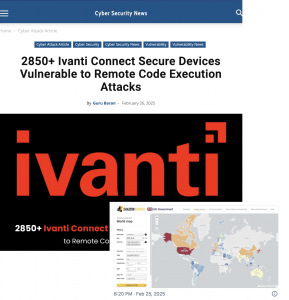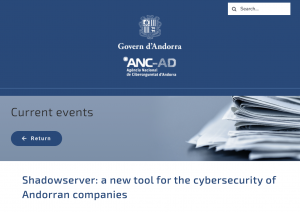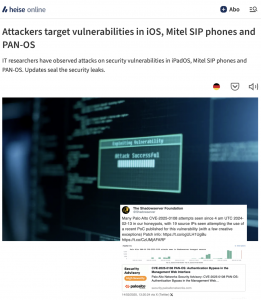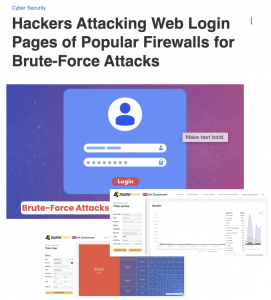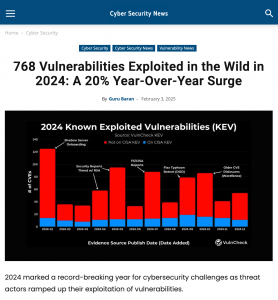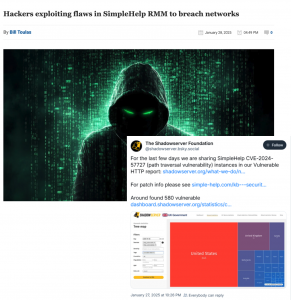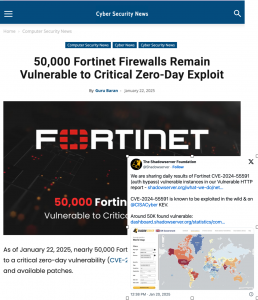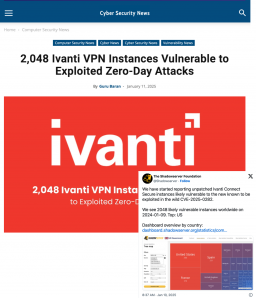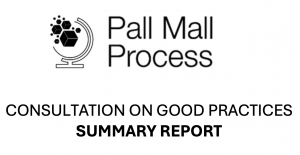2850+ Ivanti Connect Secure Devices Vulnerable to Remote Code Execution Attacks
A critical vulnerability, CVE-2025-22467, in Ivanti Connect Secure (ICS) devices has left approximately 2,850 instances worldwide unpatched and vulnerable to remote code execution (RCE) attacks. Shadowserver’s daily assessments reveal a significant prevalence of vulnerable devices across various nations. Shadowserver’s findings highlight the need for global coordination in vulnerability disclosure and remediation efforts. Their reports provide actionable intelligence to help organizations identify and secure exposed systems.


